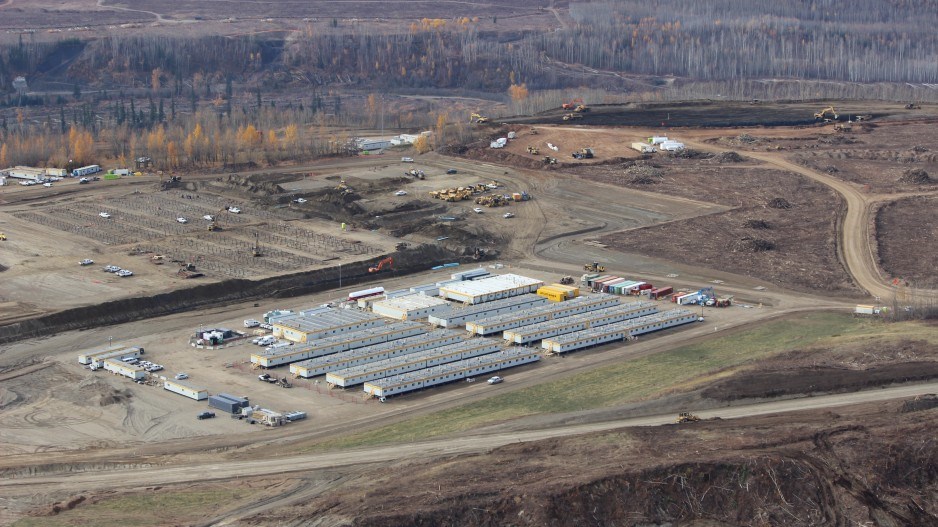The former Liberal government left the new NDP government with a “disturbing legacy” in the form of a new hydro-electric dam that B.C. may not need just yet.
But cancelling the Site C dam project now will mean passing that legacy onto B.C. taxpayers and BC Hydro ratepayers in the form of rate increases to pay for $4 billion worth of nothing.
That is the conclusion of the Allied Hydro Council of B.C., following the release of two separate reports by energy experts who analyzed a final report on Site C by the BC Utilities Commission (BCUC) and found it “manifestly unbalanced.”
The Allied Hydro Council (AHC) represents unionized BC Hydro dam construction workers.
Marvin Shaffer, an economist specializing in energy and resources at Simon Fraser University’s School of Public Policy, and Jim Quail, a lawyer specializing in labour, energy and utilities, were commissioned by the Allied Hydro Council to essentially review a review: the BCUC’s final report on Site C.
The BCUC report concluded:
• the dam is likely to come in $1.7 billion over budget ($10 billion, not $8.3 billion);
• cancelling the project would leave the province with a $4 billion debt in sunk costs, contract termination fees and remediation costs;
• BC Hydro over-estimated its load forecasts; and
• alternatives like wind power could be built at roughly the same cost of Site C.
The NDP government has questioned the latter assumption because it is not clear whether the BCUC included the sunk costs of cancelling Site when calculating the cost of replacing it with alternatives like wind and geothermal power.
Not that B.C. will need those alternatives, if the BCUC is right about BC Hydro’s over-estimated load forecasts.
“It is important to note, however, that BCUC reached this conclusion based on a manifestly unbalanced set of assumption and an incomplete assessment of costs for its alternative portfolio,” Shaffer is quoted as saying in a press release.
When it was still being considered by the former Liberal government, Shaffer spoke against the need for building Site C.
He agrees the power it would produce when completed in 2024 or 2025 may be surplus to B.C.’s needs but believes that surplus power will have value, since it can be exported.
Cancelling the project will cost thousands of workers their jobs, and will leave BC Hydro ratepayers and taxpayers on the hook for a $4 billion expenditure that will produce no new power.
As the NDP government points out in a series of questions to the BCUC, while it is reasonable to spread the cost of paying for Site C over a 70-year period, since future generations will use the power it generates, the same argument is harder to make if it is cancelled.
More likely, the $4 billion will have to be paid over a shorter time period. If amortized over 10 years, that amounts to a 10% BC hydro rate hike.
“Is it worth eating billions that will have to be collected through our Hydro bills to demolish the project and start over with a search for alternatives?” Quail asks in the AHC press release.
“That is what the issue boils down to. We say that when it comes to the economic dimensions of the issue, it’s not a close call at all. Finishing the project is the hands-down winner.”
At the same time the AHC was holding a press conference in Victoria, an American energy consultant hired by the Peace Valley Landowner Association was holding a press conference in Vancouver, where he and Richmond city councillor Harold Steves talked about the impact of the dam on farmland in the Peace River Valley and on ratepayers.
Robert McCullough said ratepayers would not be obliged to pay the $4 billion costs of cancelling Site C over 10 years. He said the government could opt to amortize the debt repayment over 30 years, which would mean British Columbians not yet born would be paying down debt for a dam that was never built though taxes or rate hikes.
While McCullough agrees with the BCUC’s assessment that B.C. will not need any new power for decades to come, if it does, he said it could use “non-treaty” storage at Mica dam, which is already paid for.
But if that was an option, it begs the question why the BCUC never considered it or included it in its three portfolios of alternative energy sources.
By cancelling Site C, British Columbians will be spared an additional $8 billion to $10 billion expense, McCullough said – something he characterized as a “termination dividend.”




